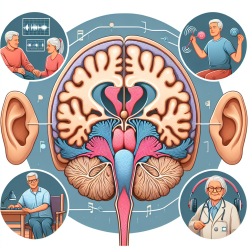Introduction
As the prevalence of Autism Spectrum Disorder (ASD) continues to rise, the demand for timely and accurate diagnoses has become increasingly critical. A recent qualitative study, "Community General Pediatricians' Perspectives on Providing Autism Diagnoses in Ontario, Canada," sheds light on the challenges and opportunities faced by community general pediatricians (CGPs) in diagnosing ASD. This blog will explore the key findings of the study and offer practical strategies for practitioners to enhance their diagnostic skills and improve outcomes for children.
The Study: An Overview
Conducted by Penner et al., the study aimed to explore the factors influencing CGPs' perspectives on providing ASD diagnoses. Through in-depth interviews with 11 CGPs, the researchers identified three main stages of the ASD diagnostic process: determining the diagnosis, communicating the diagnosis, and managing next steps after diagnosis. Each stage is influenced by an ecological context of child/family factors, personal CGP factors, and contextual/systems factors.
Key Findings and Recommendations
1. Determining the Diagnosis
CGPs face challenges in diagnosing ASD due to factors such as the child's age, severity of symptoms, and co-occurring conditions. To improve diagnostic accuracy, CGPs should consider:
- Engaging in community-based training to gain practical experience.
- Utilizing standardized diagnostic tools like the Autism Diagnostic Observation Schedule (ADOS).
- Collaborating with subspecialists for complex cases.
2. Communicating the Diagnosis
Communicating an ASD diagnosis can be emotionally taxing for both the CGP and the family. Effective communication strategies include:
- Preparing families for the possibility of an ASD diagnosis early in the assessment process.
- Providing clear and empathetic explanations of the diagnosis and its implications.
- Offering follow-up appointments to address family concerns and questions.
3. Managing Next Steps After Diagnosis
Post-diagnosis management involves navigating limited access to ASD services, which can be frustrating for families. CGPs can enhance this process by:
- Building strong rapport with families to ensure they follow through on recommendations.
- Advocating for improved service navigation and support systems.
- Reframing their definition of professional satisfaction to include the positive impact on families.
Conclusion
The study highlights the complex interplay of factors influencing CGPs' ability to diagnose ASD. By addressing these factors, practitioners can enhance their diagnostic capacity and provide high-quality, timely assessments. Further research is needed to ensure CGPs are equipped to meet the growing demand for ASD diagnoses.
To read the original research paper, please follow this link: Community General Pediatricians' Perspectives on Providing Autism Diagnoses in Ontario, Canada: A Qualitative Study.










